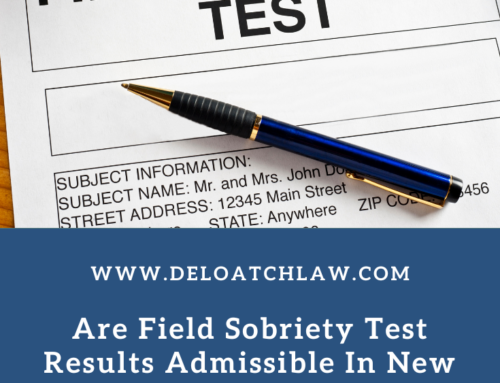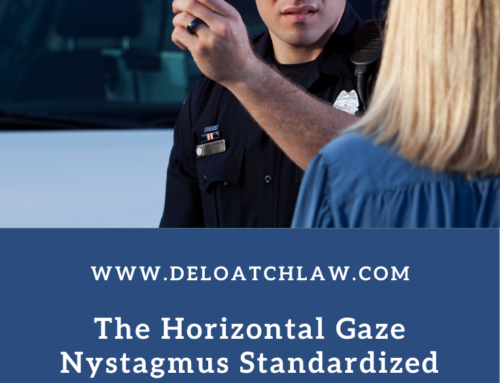 It’s the holiday season again – a time to get together with family, friends and co-workers to enjoy holiday parties, good food and good drink. And don’t forget the holiday lights. Unfortunately, this is the time of year when quite a number of holiday revelers will see the lights of a police car as they are driving home and ultimately charged with what is commonly known as drunk-driving. If you fall into this category, you probably have two big questions – first, what to do if you are arrested for drunk-driving in New York? and second, what are the penalties?
It’s the holiday season again – a time to get together with family, friends and co-workers to enjoy holiday parties, good food and good drink. And don’t forget the holiday lights. Unfortunately, this is the time of year when quite a number of holiday revelers will see the lights of a police car as they are driving home and ultimately charged with what is commonly known as drunk-driving. If you fall into this category, you probably have two big questions – first, what to do if you are arrested for drunk-driving in New York? and second, what are the penalties?
In New York State drunk-driving is known as Operating a Motor Vehicle While Under the Influence of Alcohol or Drugs, under Vehicle and Traffic Law Section 1192. More specifically, Vehicle and Traffic Law Section 1192(1) – driving while ability impaired (DWAI) – addresses drivers who operate a motor vehicle while their ability is impaired by alcohol. A person can also be charged with driving while intoxicated (DWI) under Vehicle and Traffic Law Section 1192(2), if a chemical analysis of their blood, breath, urine or saliva shows that they had a blood alcohol content (BAC) of .08. VTL 1192(1) has a lower threshold than 1192(2).
To determine whether you are under the influence, law enforcement uses a number of techniques. First, there is the observation of the police officer as to how you operated your motor vehicle prior to the traffic stop. They will observe such factors as your speed in relation to the posted speed limit, your ability to stay in your lane and your ability to adhere to the traffic controls (i.e. stop signs, stop lights, etc.).
Once you have been stopped, law enforcement will take note of a number of aspects about you that they are able to perceive with their senses (i.e. visual, smell and hearing). For example, they will observe whether your eyes are bloodshot, watery or appear tired or glossy; whether your complexion appears flush; whether your speech is slurred; whether you smell of an alcoholic beverage and whether your clothes appear disheveled, just to name a few aspects about you of which they will take note.
If the law enforcement officer suspects you to be under the influence after they had the opportunity to observe you, then they typically will ask you to submit to a chemical test to determine your blood alcohol content (BAC).
Under New York’s Implied Consent Law, if you are a motorist, it is implied you have given your consent to have your blood, breath, urine, or saliva tested for alcohol or drugs if an officer stops you. So, if you are stopped and asked to take a chemical test and you refuse, there are serious consequences. In addition to being arrested and having criminal charges to defend against, you will be subject to a hearing with the Department of Motor Vehicles (DMV) to determine the validity of your refusal. If it is determined at the DMV hearing that you did in fact refuse to submit to a chemical test and that refusal was not justified, your license will be immediately suspended for a minimum of six months. Additionally, your refusal can then be used as an admission of guilt in the criminal proceeding against you.
As a general rule, refusing to submit to a chemical test when stopped by law enforcement creates more problems for you in the context of a criminal proceeding, the DMV hearing, as well as with your automobile insurance carrier.
So what happens if you are arrested and charged with DWI/DWAI? The short answer is it depends. Depending on various factors, you can be charged with a violation (i.e. not a crime), a misdemeanor or a felony. Unfortunately, a conviction of any of those will lead to you being subject to various other penalties/punishments. Moreover, a conviction of any of those will lead to a number of undesirable consequences, including, license suspension or revocation; fines; insurances surcharges; mandatory classes; and, in the most egregious circumstances possible jail time. Moreover, a conviction of either the misdemeanor or felony will leave you with a criminal record that will follow you for the remainder of your life.
Possible penalties/punishment for DWAI violation include:
- up to 15 days in jail;
- a fine of between $300.00 and $500.00;
- a license suspension for 90 days;
- a court surcharge of $255.00/$260.00;
- a DMV driver responsibility assessment of $250.00 annually for 3 years; and
- mandatory attendance of a Victim Impact Panel.
Possible penalties/punishment for misdemeanor DWI conviction include:
- up to 1 year in jail;
- a fine of between $500 and $1,000.00;
- probation of 2 or 3 years;
- a driver license revocation of at least 6 months;
- an ignition interlock device for at least 6 months;
- a court surcharge or $395.00;
- a DMV driver responsibility assessment of $250.00 annually for 3 years; and
- mandatory attendance of a Drinking Driver Program and Victim Impact Panel.
Possible penalties/punishment for a felony DWI conviction includes:
- up to 4 years in prison;
- a fine of between $1,000.00 and $5,000.00;
- probation for 5 years;
- an ignition interlock device for at least 6 months;
- a driver license revocation of at least 1 year;
- a court surcharge or $520.00;
- a DMV driver responsibility assessment of $250.00 annually for 3 years; and
- mandatory attendance of a Drinking Driver Program and Victim Impact Panel.
Please note that the penalties/punishment(s) are more severe if you are less than 21 years old or hold a commercial driver’s license.
Also, if you had a prior DWI conviction within 5 years of a new DWI conviction, the penalty must include a minimum of 5 days in jail or 30 days of community service.
As daunting as all of the consequences may seem, all hope is not lost if you are charged with DWI/DWAI. You still have rights.
What To Do If You Are Stopped And Arrested For Suspected DWI/DWAI
So what should you do if you are stopped and arrested for suspected drunk-driving? Remember, you have rights. We’ve all heard about the right to remain silent and the right to not be questioned without your attorney, but how many of us truly appreciate what these concepts mean?
The Right to Remain Silent
The right to remain silent means that you have the right to not make any statements which can be incriminating (i.e. used against you in a criminal proceeding). This includes answering questions that law enforcement may ask when you are stopped for suspected to drunk-driving.
Quite often law enforcement may ask questions like: have you had anything to drink?” or “where are you coming from?” You can exercise your right to remain silent and not answer any questions that can lead to an incriminating statement.
As discussed previously, law enforcement may ask you to submit to a chemical test if they suspect that you are under the influence. In New York State, law enforcement officers are required to advise a person that they ask to submit to a chemical test that they have the right to refuse the test. However, if you refuse to submit to a chemical test, your refusal can be used as an admission of guilt in a criminal proceeding if you are ultimately arrested and charged with DWI/DWAI. Although it appears that a person is exercising their right (to remain silent) in refusing the chemical test, they actually end up making an incriminating statement in doing so.
As I said before, refusing to submit to a chemical test when stopped by law enforcement tends to create more problems for you.
The Right To Not Be Questioned Without An Attorney
Similar to the right to remain silent, you have the right to have an attorney of your choosing present if you decide to answer any questions. Once you tell law enforcement that you choose to exercise your right to an attorney/counsel they are required to cease all questioning that would lead to an incriminating statement. Even if they continue to ask such questions you can continue to evoke your right.
Once you have evoked your right to counsel law enforcement can continue to ask the standard background questions to determine your name, age, place of residence and occupation.
The results of all criminal prosecutions are determined by the facts and circumstances of your specific case and the skill and experience of your defense attorney. Remember, you have rights and the district attorney still has the burden of proof in a criminal prosecution.
If you or someone you know has been charged with DUI/DWAI in New York call the Law Office of Kevin J. Deloatch, Esq. at (646) 792-2156. The outcome of a criminal case is often determined by what occurs at the beginning stages of the prosecution. Call today for a free consultation.








